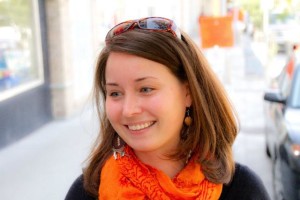“I can’t believe this is still happening”
That’s the response I usually get from friends and family when I tell them that I’ve spent the past two years coordinating a project to address gendered violence against university students. I generally concur with the exasperation, but am quick to point out that it seems unfair to expect to see less gendered violence on campus when relatively little has changed in how we address it on university campuses and in the surrounding communities in which university students live, work and play.
JOIN OUR 2-day SymposiumEveryday: Freedom from Gendered ViolenceMarch 11th & 12th Engage with campus and community participants on issues related to gendered violence against students in our community. |
The Change Project, a university-community collaboration funded by Status of Women Canada and led by the Sexual Assault Support Centre of Waterloo Region has taken a long view approach to working toward safer campuses in our region. Over the past 2 years we have talked to over 650 students, staff, faculty and community stakeholders at Wilfrid Laurier University and the University of Waterloo as part of 2 separate needs assessments. The goal of this work has been to understand what our institutions of higher learning are doing well in terms of addressing gendered violence – both in its prevention and response – and what still needs to be done. Ultimately, our aim was to end gendered violence on campus through transforming the institutional and cultural climate of the universities and communities.
Both universities have remarkable capacity to address gendered violence and we have been inspired by the growing attention they have paid the issue over the course of the project. They are also aware of some of the gaps that need to be filled and have begun to demonstrate their capacity to do so in earnest.
What we have learned is that gendered violence – including sexual assault, sexual harassment, intimate partner violence, stalking, biphobia, transphobia and homophobia – is ubiquitous; that is, it happens wherever students are. For students in Waterloo Region that means they are encountering violence in their classrooms and residence buildings as well as in our community: our restaurants and bars, parks, buses, and neighbourhoods. In fact, previous research suggests that most incidents of sexual violence that students experience happen off-campus, outside of the geographic boundaries of the university. And students experience campus life socially, the social boundaries of which can extend quite deeply into our community.
I think this points to a need to look at gendered violence against students as a whole community concern. The efforts of our campuses to prevent gendered violence and support survivors will inevitably fall short if we do not start with a definition of the problem that takes the entire community as its focus and potential site of intervention. How we frame the problem will inform what happens next, who acts and how, and who is held accountable for ensuring student, and by extension community, safety. By broadening our frame of reference we also create an opportunity to draw connections between the gendered violence that is experienced by students with the violence experienced by other members of our community. I believe we can open new doors of possibility for developing truly innovative solutions to an age-old problem by connecting the capacity and knowledge that resides in the university with that of the community.
Are you interested in this topic? The Social Innovation Research Group invites you to join us for a 2-day symposium, Everyday: Freedom from Gendered Violence, March 11th and 12th to engage with campus and community participants on issues related to gendered violence against students in our community. Visit the SIRG website for more information about The Change Project.

Jay Harrison
Author: Jay Harrison is the coordinator for The Change Project at the Social Innovation Research Group. She has been working on issues related to gendered violence against students in Waterloo Region since 2005 when she was an undergraduate student at Wilfrid Laurier University. Jay works with social sector organizations in Waterloo Region and beyond to support their social change efforts through research and evaluation.
